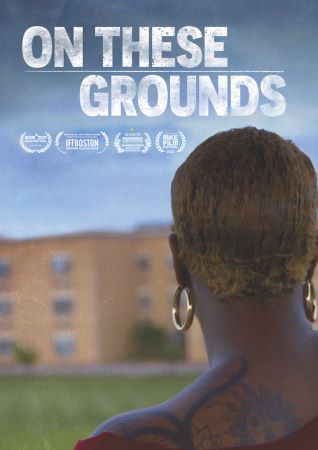
On These Grounds 2021
Distributed by The Video Project, 145 - 9th St., Suite 230, San Francisco, CA 94103; 800-475-2638
Produced by Chico Colvard, Jeff Consiglio, and Ariana Garfinkel
Directed by Garrett Zevgetis
Streaming, 101 mins
College - General Adult
Activism; Race Relations; Social Movements
Date Entered: 06/17/2022
Reviewed by Brandon West, Social Sciences Librarian, State University of New York at GeneseoTalking about race is uncomfortable for many people, particularly in recent years as the political climate has become very divisive in the United States. There is a growing movement asking white people to recognize their privilege and recognize that systemic racism continues to oppress communities of color. There is also a large contingency of people who do not embrace these ideas which creates this contributes to the racial tension in our society. Director Zevgetis engages this conversation by examining a disturbing video that went viral in 2015. The video shows a white school resource officer trying to detain a teenage Black girl in the middle of class. The officer grabs the girl and knocks her over while she seated at her desk, and he eventually starts dragging her across the floor. This viral video serves as a case study to examine racially motivated offenses through the perspectives of the involved parties.
The film begins by introducing the people involved in the incident at Spring Valley High School–Shakara, the individual who was assaulted; Naya, her classmate who recorded the video; and the school resource officer, Ben Fields. Each person recounts what they remember about the event and shares how they have dealt with the aftermath. Their experiences serve as a springboard for a larger conversation about South Carolina’s “Disturbing Schools Law” that allows teachers to call the police on students for disrupting class, which often leads to them being arrested. The law was created to limit flirting at women’s colleges in South Carolina and evolved to include disruption at public schools in South Carolina around the time of desegregation in the schools. As a result, students of color are disproportionately affected by this law, including Shakara, for her math teacher called the school resource officer as she sat quietly at her desk in protest of a false accusation he made.
While Spring Valley High School is the focus, the film contains a larger discussion about race in the United States. One notable specialist includes Robin DiAngelo, author of the book White Fragility. Robin’s role in the film serves as way to help explain the complex nature of racism and white privilege. Following the initial examination of the incident, the film shifts focus to Vivian Anderson. She is an activist who was inspired to move from Brooklyn, NY to South Carolina to advocate for Black girls after seeing the viral video. Vivian serves as a mentor to Shakara, and she also interviews Ben Fields, as she tries to better understand him and educate him on racism. Vivian’s work led to her creating EveryBlackGirl Inc., an advocacy organization for Black girls that develops programs focused on wisdom, leadership, and needs for Black girls. The film also features brief discussions by a geographer named Janae Davis, who investigates the intersection of land and history; she opens the film by discussing how South Carolina’s racial history still influences the present. Janae’s contributions connect to the themes of the documentary but the way they are peppered in make them seem extraneous.
The documentary gives the viewer plenty to digest and unpack during its 101-minute runtime. The film is engaging, and it is likely to make some people feel uncomfortable. This can be a good thing as the it can help educate viewers who are grappling with the concepts of white privilege and racism. Even though the intent of the film is clear, the presentation of both sides is fair; for example, Ben Fields is never intentionally humiliated on camera. Given how highly politicized the discussion of racism is, the primary audience may be a bit difficult to pinpoint. The film’s website notes that this documentary is appropriate for ages grades 9–adult. Younger students will benefit from viewing it under the conscientious care of an educator or guardian ready to facilitate the conversations that will follow. The subject of the film is multidisciplinary and could support curriculum in Black & African American studies, sociology, history, and criminal justice. This film is highly recommended for library collections largely for the important and timely conversation it delivers.
Awards:Providence Children's Film Festival, Audience Choice, Best Feature Documentary Film; IFF Boston, Special Jury Award, Documentary Feature; Anchorage International Film Festival, Award Winner
Published and licensed under the Creative Commons Attribution 4.0 license. Anyone can use these reviews, so long as they comply with the terms of the license.